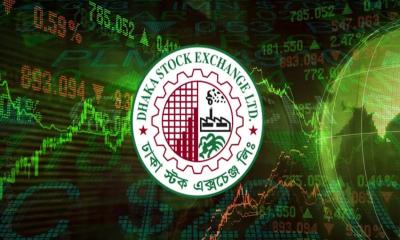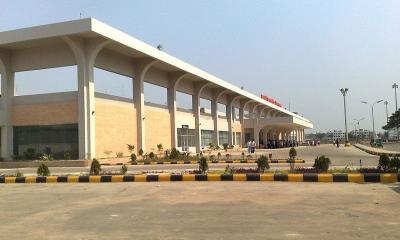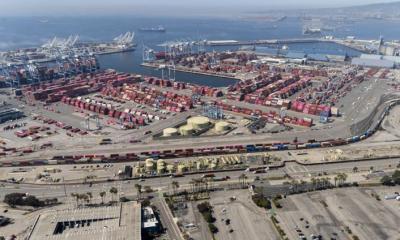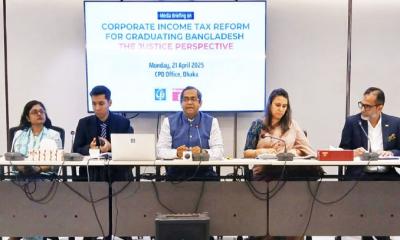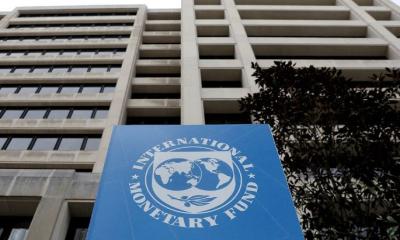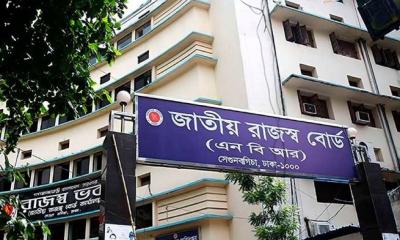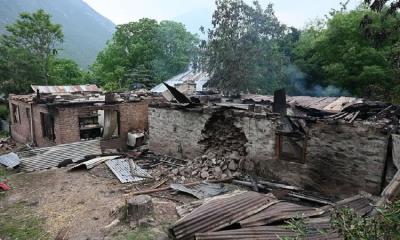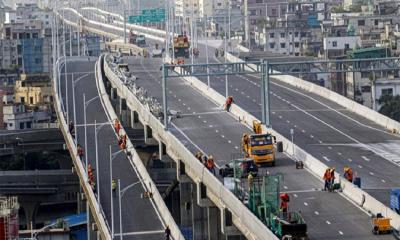Aiming at restricting the drastic fall of scrip prices, the regulator has come up with further measures to reinstate "floor price" for shares of 169 companies at the Dhaka and Chittagong stock exchanges.
The "floor price" implicates the non-exit of shareholders by selling scrips as there will be no buyer. The price ceiling is actually the lowest margin at which a stock can be traded.
After enforcement for the first time amid macroeconomic turbulence sparked by the Russia-Ukraine war, in July 2022, the regulator lifted the "floor price" measure in December.
But with uncertainty looming large in the economy, the Bangladesh Securities and Exchange Commission (BSEC) on March 1 issued a directive to both bourses to return to the floor price regime.
Hardship
Speaking with an investor recently, this correspondent came to know about the miseries that the person has been going through due to the price issue.
He could not even afford medication for his ailing child. Things turned so worse that he even cried at a brokerage firm to sell his shares, but in vain.
Interestingly, he manages the accounts of the firm. But floor price stopped him from selling shares. His child is still fighting for life. But the investor has nothing to do about it despite his last resort: selling shares at “compromised” prices.
In brief, he has money but still fails his child’s treatment due to cash crisis. And this is why he even begged at the brokerage house – a leading one in the country.
Officials of the firm declined to comment in fear of “action from the regulatory body.”
History of floor price in Bangladesh
In July last year, the regulator, for the first time, imposed the floor price to halt the free fall of the market indices amidst global economic uncertainties.
On December 21, the BSEC removed floor prices for 169 scrips.
But on March 1, the floor price was reinstated.
Many investors question the pricing in the free market economy. A major setback of this is the humanitarian crisis, which is evident in the case study mentioned above.
Another adverse impact is “zero trading” at brokerage firms and merchant banks on many occasions.
These firms make money from commissions against the trading of shares. But when there is no transaction, there is no money.
A number of brokers are even failing to pay their employees. Many of them have started squeezing manpower. Hence, stakeholders fear that many firms will lay off their business if the trend continues. This means the country’s stock market will collapse.
Analysts, too, second the investors and the broker over the floor price issue. They say that there is no point in putting the money on hold in the name of floor price.
However, the BSEC has something else to say in its defence. It claims that the move is aimed at “protecting the interest of general investors.”
Is it so?
A general investor uses his money on a short- or long-term basis for profits. Also, he intends to withdraw the money he invests when needed. But the floor price does not allow him to do so; even at his toughest times.
This implies an investor is deprived of “easy access to liquidity”.
Dhaka Stock Exchange (DSE) Shareholder Director Shakil Rizvi termed it a clear violation of the basic rights of an investor.
“We are not under a socialist economy. So, why this floor price?” he questioned.
Rizvi, owner the Shakil Rizvi Stock Ltd brokerage firm, said stock market will run on its own course.
“Prices will go up and down – this is how the nature of the market. An investor comes here by accepting this,” he said.
But if that investor knew about the floor price, he would have never thought of investing, Rizvi said.
Stakeholders think that a vested quarter within the BESC has imposed the floor price out of their “evil desire”.
After putting the market into a stalemate, they would remove the price issue. In that case, general investors will go on a mad race to sell their shares to recover the least amount on their investment.
The prices of shares, in such a situation, fall drastically. And the vested quarter always waits for such a grim atmosphere so they can make a quick buck.
Ziaur Rahman, editor of Artho Suchak, said the introduction of floor price was such a bad decision.
“This has already badly impacted the stock market. And the return of the floor price will take a heavy toll on the brokerage house and merchant banks in the next three months,” he feared.
What’s next?
The journalist said other than local investors, foreigners will not make investments here.
“Because they won’t be able to bank on the market regulator. The BSEC spend millions to attract foreign investment, but that hardly worked. Instead, Bangladesh lost a number of foreign investors due to the floor price,” said Ziaur.
The BSEC, according to him, is trying to manage a fund to tackle the “forced or pressured” sale of shares and to stop manipulation.
The regulatory body is in touch with the central bank, but not getting the expected response from the latter, he said citing lack of good administration of the BSEC.




